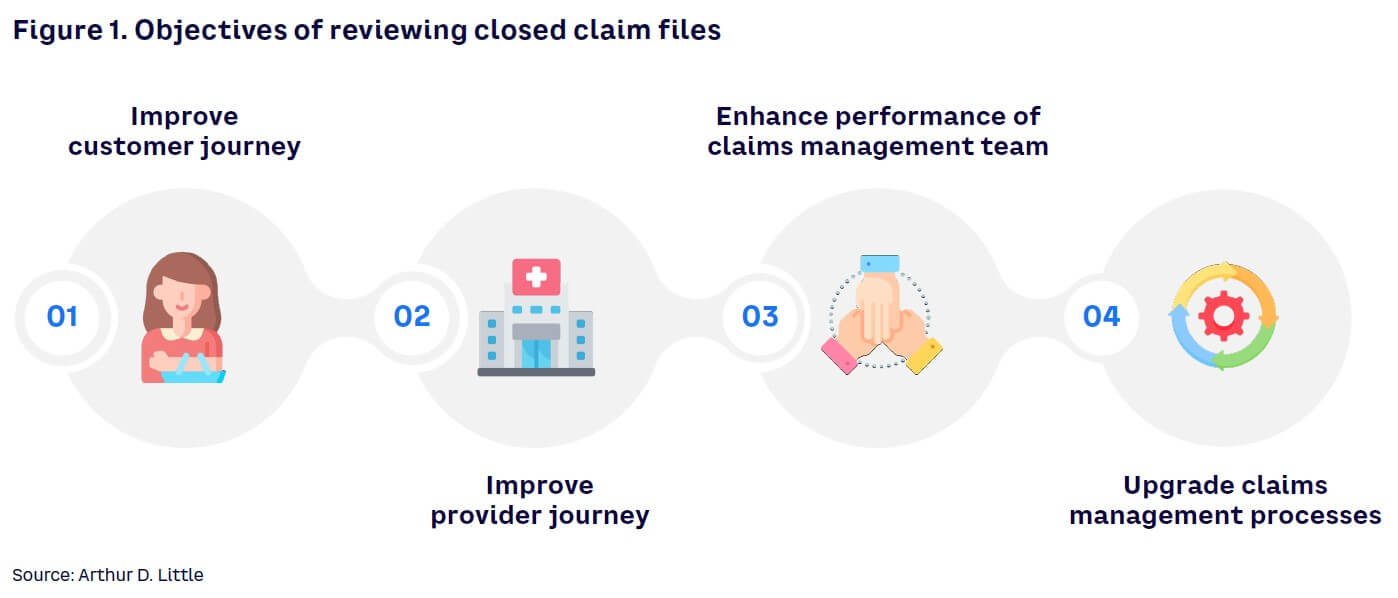Claims Management Strategies: Boost Your Efficiency
Claims management is the process of handling insurance claims from start to finish. It involves initiating, processing, and resolving claims efficiently and effectively.
This crucial function ensures that insurance carriers pay claims in compliance with regulations, providing fair compensation to claimants. In the realm of healthcare, medical claims management involves the submission, processing, and management of healthcare claims between providers, patients, and insurance companies.
By streamlining the claims process, claims management software plays a vital role in enhancing operational efficiency and ensuring accurate claim adjudication. Understanding the significance of claims management is essential for organizations seeking to optimize their claims handling procedures and deliver prompt resolutions to claimants.

Credit: kmrdpartners.com
Introduction To Claims Management
Claims management encompasses the process of handling insurance claims from initiation to resolution. It involves managing, evaluating, and analyzing claim circumstances to ensure proper compensation for financial loss or breach of contractual obligation. Claims managers play a vital role in processing insurance claims efficiently and providing expert advice on insurance policies.
| Claims Management |
| Claims management encompasses services for compensation, reparation, or financial loss resolution within insurance. It involves processing claims, evaluating circumstances, and advising on policy matters. |
| Claims managers handle insurance claims, review submissions, monitor progress, and offer policy guidance. Medical claims management in healthcare ensures efficient processing between providers, patients, and insurers. |
Technological Advancements In Claims Management
Technological advancements in claims management have revolutionized the way insurance companies operate. The role of AI and machine learning has significantly improved the accuracy and speed of claims processing. By leveraging automation and streamlining processes, insurance companies have experienced benefits such as reduced operational costs, faster claims resolution, and improved customer satisfaction.
Optimizing The Claims Process
Claim management is the process of providing services and advice to individuals or organizations who have suffered financial loss or breach of contractual obligation. To optimize the claims process, it is important to reduce errors and delays. This can be achieved by taking the following steps:
- Streamline the process of DRP enrollment and management to eliminate manual networks and outdated spreadsheets
- Gather and process information regarding the underlying policy and coverages, the claim, and the claimant using a claims management system
- Monitor claims as they progress and provide advice about insurance policies as needed
- Submit, process, and manage healthcare claims efficiently between providers, patients, and insurance companies
By implementing these steps, claims can be processed more efficiently, reducing errors and delays, and ultimately leading to more satisfied customers.

Credit: www.invensis.net
Claims Management Software Solutions
Claims management involves the myriad of advice and services for claims, compensation, or financial loss. A claims management system is a transaction-enabled system of record for gathering and processing claim information. Claims managers process insurance claims and provide advice about insurance policies. Medical claims management involves submitting, processing, and managing healthcare claims. Insurance claims management ensures the payment of claims in accordance with regulations. It is the systematic process of handling insurance claims from initiation to resolution. Claims management resources adjust and recover property damage claims for governmental agencies and companies in the utility industry.
Data Security And Compliance
When it comes to data security and compliance in claims management, it is crucial to ensure data protection at every step of the process. This involves implementing robust security measures to safeguard sensitive information and complying with regulatory requirements to protect customer data.
Ensuring compliance with regulatory requirements is essential in claims management. It involves adhering to industry standards and data protection laws to maintain the integrity and confidentiality of customer information.

Credit: www.adlittle.com
Training And Development For Claims Managers
Training and development are crucial for claims managers to succeed in their roles. Essential skills for claims managers include strong communication, critical thinking, and problem-solving abilities. Claims managers must also have a deep understanding of insurance policies and regulations, as well as excellent customer service skills. Continuing education and certifications are important for staying up-to-date on industry changes and advancements. Certifications such as the Chartered Property Casualty Underwriter (CPCU) and Associate in Claims (AIC) can demonstrate a manager's expertise and commitment to the field. Ongoing training can help claims managers refine their skills and stay current with industry best practices.
Evaluating Claims Management Performance
Claims management involves the advice and services for compensation, restitution, or remedy for financial loss. A claims management system gathers and processes information related to policies, coverages, and claimants. Claims managers process insurance claims, review submitted information, and provide advice on policies. In healthcare, medical claims management includes submitting, processing, and managing healthcare claims. Insurance carriers ensure proper claims payment through the claims management process. This systematic process handles insurance claims from initiation to resolution. Claims Management Resources adjusts and recovers property damage claims for governmental agencies and utility companies.
Future Trends In Claims Management
The future of claims management is evolving with advancements in technology, leading to more efficient processes and better customer experience. Automation, data analytics, and AI are revolutionizing claims handling, resulting in faster settlements and improved accuracy. Additionally, there's a growing focus on proactive risk management to prevent claims before they occur.
| Future Trends in Claims Management |
| Predictions for the Industry |
| Claims management is a vital aspect of the insurance industry. The future of claims management is evolving rapidly due to technological advancements. Insurance companies are embracing digital solutions to streamline the claims process and enhance customer experience. Automated systems are being implemented to expedite claim settlements and reduce errors. Data analytics is playing a crucial role in identifying fraudulent claims and improving operational efficiency. AI and machine learning are revolutionizing how claims are assessed and processed. Enhanced cybersecurity measures are being adopted to protect sensitive claim information. Continuous adaptation to new trends is essential for staying competitive in the claims management sector. |
Frequently Asked Questions
What Is The Meaning Of Claim Management?
Claim management encompasses services for compensation, restitution, or resolving financial losses and contractual breaches by firms.
What Does A Claims Management System Do?
A claims management system gathers, processes, evaluates, and analyzes information related to insurance claims efficiently.
What Does A Claims Manager Do?
A claims manager processes insurance claims, reviews submitted information, monitors claims, and provides policy advice.
What Is Claims Management In Healthcare?
Claims management in healthcare involves the submission, processing, and handling of healthcare claims among providers, patients, and insurance companies.
Conclusion
Effective claims management is essential for businesses to minimize financial loss and maintain customer satisfaction. By utilizing advanced technology and strategic processes, organizations can streamline the claims handling process and ensure timely resolution. Embracing a proactive approach to claims management can ultimately lead to cost savings and improved operational efficiency.

